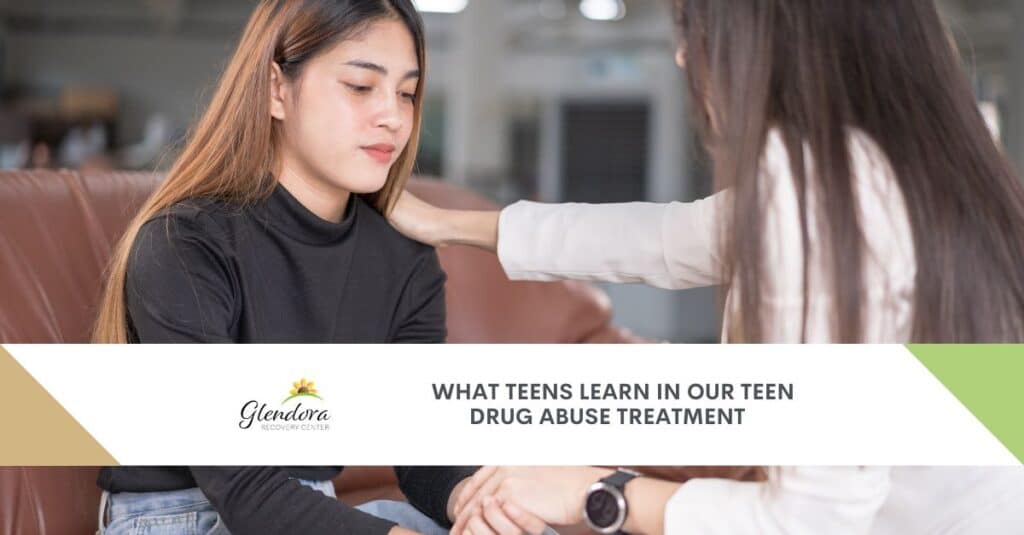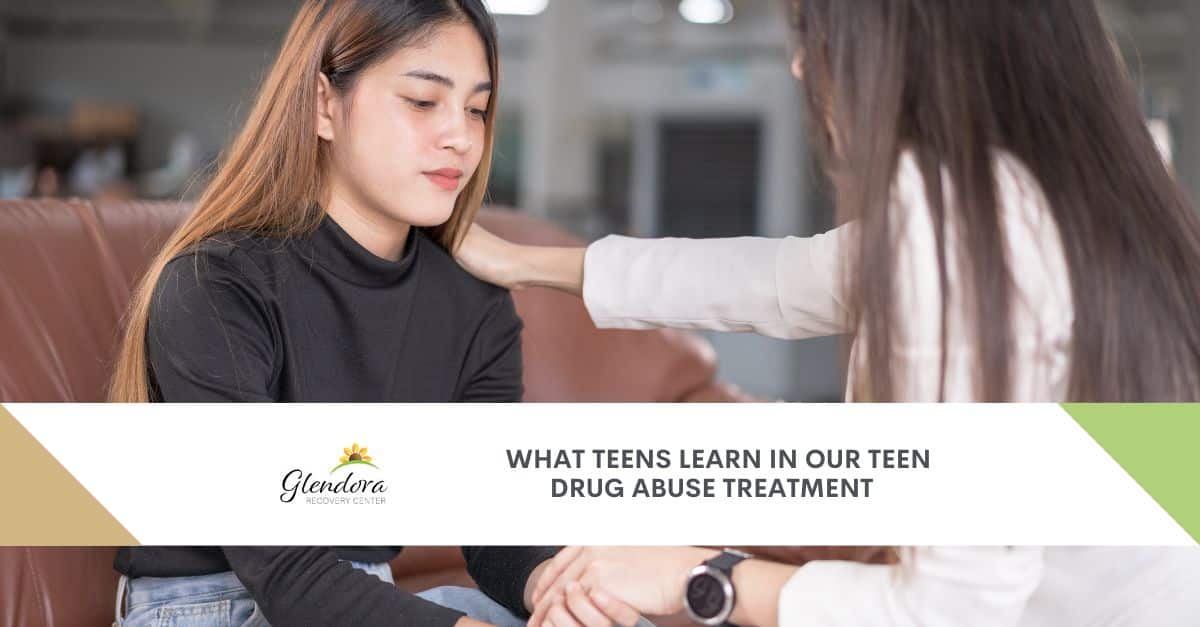There’s no doubt that drug abuse is a serious problem in our society. According to the National Center on Addiction and Substance Abuse (CASA), substance abuse affects one out of every ten people between the ages of twenty-one and thirty-four. This age group has sometimes been referred to as a high-risk generation because they are at a high chance of developing addiction issues due to their youth and inexperience. At our facility, we strengthen our program through the use of learning tools in order to improve the success rate of our teens as part of their teen drug abuse treatment.
Addiction Among Teenagers
Teenagers are more likely to become addicted to drugs or alcohol if they have a pattern of binge drinking or drug use. Teenage substance abuse can be fatal, even in the absence of addiction. Excessive alcohol consumption can result in a fatal case of alcohol poisoning, and a drug overdose has a high chance of resulting in death too.
Many teenagers lack the knowledge to know how much of these substances their bodies can handle. Teenagers frequently abuse these substances secretly or unsupervised at parties because they are illegal for them to possess. Teenagers who excessively use drugs or alcohol on a regular basis run the risk of overdosing and developing addictions.
Learning About Triggers is Essential for Recovery
Many people mistakenly think that quitting alcohol or drugs is as easy as saying, “I’m done.” The reason why staying sober is more difficult than it seems is best demonstrated by triggers. It is very challenging to understand how to deal with triggers if there is a lack of information about them. That’s why our teens learn a great deal about triggers and how to deal with them.
How Do Triggers Work?
A trigger is, to put it simply, anything that evokes memories, thoughts, or feelings related to addiction. People who are in recovery from a substance use disorder experience triggers. However, they can also occur in those who have been dependent on food, sex, gambling, or other behavioral addictions. Cravings, which are described as a strong desire to do something, can occasionally result from triggers.
How Can Teens Develop An Addiction?
Even though it’s impossible to predict whether someone will become addicted or not, there are a number of known risk factors that can raise the likelihood of addiction. Additionally, adolescence comes with some risk factors that can increase the rate of addiction in susceptible groups.
For instance, the majority of people with mental health disorders first show symptoms in their teen years. Since teens frequently are unaware of how to interpret various feelings and situations, they may use drugs or alcohol to treat distressing symptoms of depression, anxiety, or other mental health disorder. According to estimates, up to 50% of individuals who enter drug and alcohol rehab also have a co-occurring mental health disorder that either precipitated or exacerbated their addiction disorder. In order to fully assess and treat their teen for an underlying mental health disorder, parents must immediately enroll their teenager in treatment.
The Teenage Brain
Teenagers’ vulnerability to substance abuse stems from the fact that their brains are still developing. The prefrontal cortex is still developing during adolescence as the brain is still forming its neural network. An area of the brain called the prefrontal cortex is responsible for making critical decisions, managing emotions and impulses, and analyzing situations. A person’s mid-20s is when this part of the brain reaches its full maturity.
Some teenagers may be more prone to drinking or using drugs because they may have a less developed prefrontal cortex than adults. Teenagers may indulge in their pleasure-seeking impulses to drink or use drugs, but they lack the maturity to fully understand the ramifications of their actions.
Relapse Prevention: What Is It?
Relapse is a period of abstinence followed by a return to drug or alcohol use.
Teaching teenagers about a recovery plan is just one of the many things one can do to reduce relapse episodes. Writing a relapse prevention plan and taking actions to help yourself adhere to it can be a part of strategizing for recovery. Even though the relapse prevention plan may not always be in writing (for instance, a verbal agreement), doing so can have a number of advantages.
A written relapse prevention plan can act as a practical, tangible physical reference that can be consulted as necessary. As part of a comprehensive addiction treatment program, this plan is frequently discussed and worked out during counseling and therapy sessions. However, it can be created in any situation at any time.
In stressful situations, a plan can act as a blueprint to refer to, reminding you of your options and your long-term objectives. It can help you stay responsible and committed to your recovery. Relapse prevention strategies are highly individualized and catered to your unique needs, circumstances, and triggers.
An Available Solution For Teens
We have the best strategy if you or someone you care about is looking for an effective addiction recovery program. Our staff at Glendora Recovery Center is prepared to assist people who are having trouble finding time in their schedules for treatment.
Call us at (626) 594-0881 or fill out the contact form on our website if you have any questions about our intensive outpatient program or our treatment center in general.





